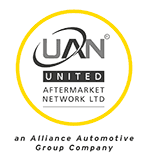
European Truck Platooning
During April the Dutch port of Rotterdam hosted perhaps the most powerful practical demonstration yet of the potential benefits of digitally connected, semi-autonomous trucks, better known as platoons.
Six European truck manufacturers responded enthusiastically to the European Truck Platooning Challenge issued by the Dutch government as part of its current six-month European Union presidency. DAF, Daimler, Iveco, MAN, Scania and Volvo Group each dispatched a platoon of trucks from a different European city on 29 March to arrive in Rotterdam on 6 April.
Not only is this the first time in Europe that such platoons have operated internationally, it is also a global first. The central aim of the Dutch government in organising this project is to highlight the disparities in legislation between EU member states that are acting as barriers to more rapid platooning development.
There would seem to be scarcely any disagreement about the potential immediate benefits, including better fuel economy (and thus lower CO2 emissions); improved safety, not least because of virtually zero braking reaction time by autonomous systems; and more efficient use of severely limited road space. But in the view of at least one prominent economist, this is not even the half of it.
Why is any economist taking a keen interest in truck technology? Jeremy Rifkin made this abundantly clear in Düsseldorf in March at the unveiling of the latest semi-autonomous Mercedes trucks employing Daimler’s Highway Pilot Connect system. Rifkin is an American economist who has written around 20 books on the impact of scientific and technological changes on society. He has been advising senior political figures in the EU, including German Chancellor Angela Merkel, for the past 15 years. His opinions, therefore, carry significant weight.
Rifkin is firmly of the opinion that connected trucks, playing their part in the “internet of things”, will be right at the heart of an industrial and economic revolution, the significance of which is hard to exaggerate.
Rifkin sees trucks, connected to each other, to the infrastructure, to other businesses and to individuals as playing a vital role in that new “economic narrative.”
Daimler’s commercial vehicles boss Wolfgang Bernhard evidently agrees, which is why he invited Rifkin to speak at last month’s Highway Pilot Connect launch. Like Rifkin, he expects trucks to become “mobile data centres”. What exactly does this mean the future holds for Daimler, the world’s biggest manufacturer of trucks and buses?
Rifkin said, “Daimler’s still going to be making vehicles for a long time. But vehicles like those using Highway Pilot Connect will allow Daimler to be among the first to create a logistics business, using data for everyone. You will be able to get help from Daimler to mine that data. And then we’re going to move to electric and fuel-cell vehicles powered by renewable energy at near-zero marginal cost. Vehicles will be 3D printed and will operate on smart road systems. Logistics costs will plunge.”
If all this sounds altogether too far-fetched and futuristic for the practical, down-to-earth world of modern road transport, consider what Bernhard, a hard-nosed businessman if ever there was one, had to say on the subject. “Connected trucks will have a huge impact,” he said. “They will transform transportation completely. When we look back in ten years we’ll recognise this was the turning point.”
Autonomous driving is seen by Bernhard as easy to explain. “It’s very straightforward. The driver takes his hands of the wheel and his feet off the pedals, and that’s it. Everybody gets the idea. Connectivity is not so easy to explain.”
He set about explaining the immediate potential by pointing to some everyday problems that are all too familiar to truck operators and drivers. “We’ve got waiting times, empty runs and traffic jams,” he said. The root cause of all this, Bernhard explained, is “lack of real-time information”. The connected truck can provide that information. His vision for what he describes as “the ultimate connected truck” is that it will always be driving, always fully loaded, never stuck in a traffic jam, never suffering an unscheduled breakdown, and always with a happy driver at its controls.

 Click here to open the navigation menu
Click here to open the navigation menu